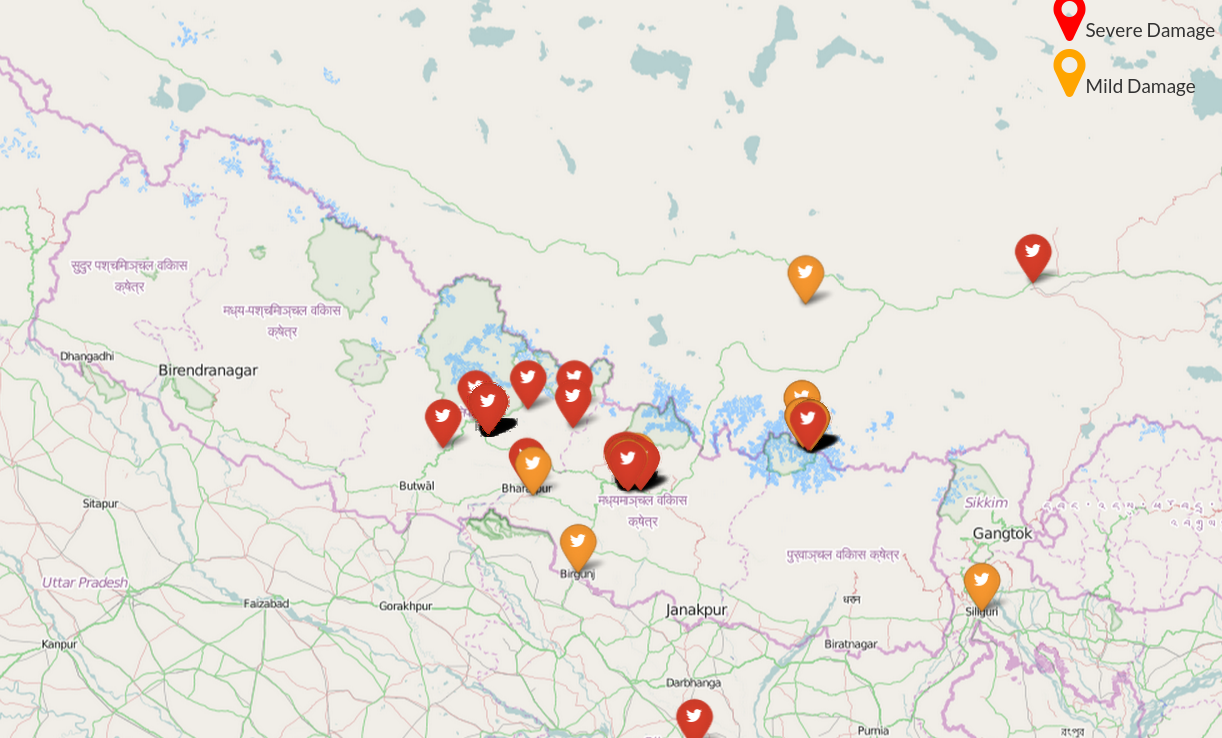On July 4th 2009, Emin Milli — blogger and one of the Alumni Network founders —spoke at “a Heinrich Böll Foundation roundtable dedicated to a democratization process in Azerbaijan, where he criticized the Azerbaijani government strongly.” Four days later, on July 8th 2009, he and Adnan Hajizada — blogger and co-founder of the OL! Azerbaijan Youth Movement — were attacked at a Baku Café by unknown ‘sportsmen.’ The bloggers were arrested and the following days they spent in detention — which turned into months — became a blow-to-free-speech headline in cyber history.
Hajizada and Milli, known as “donkey bloggers,” filmed a satirical video — critical of the Azeri government — on press freedom and posted it on YouTube. The video — motivated by the government of Azerbaijan’s decision to spend significant dollar amounts importing donkeys from Germany — is of a mock press conference held by Azeri President Ilham Aliyev dressed in a donkey suit. On his blog In Mutatione Fortitudo, blogger Ali S. Novruzov reports that the donkeys cost $18,500 USD. In the spoof video, the multilingual, violin-playing donkey was honored with a standing ovation from his crowd after announcing his desire to create an NGO that protects the rights of donkeys in the country.
The men, both youth activists from Azerbaijan, were charged with ‘hooliganism,’ under Article 222.1 of the Criminal Code. According to the Committee to Protect Journalists (CPJ), ‘hooliganism’ is “a criminal charge that carries up to five years in jail.” According to Radio Netherlands Worldwide (RNW), “Milli was sentenced to 30 months’ imprisonment and Adnan to 24 months.”
After being sentenced on November 11th 2009, Milli’s first message read: “Our Vision prevails their fear… Our Passion prevails their power… Our Love prevails their hate… Celebrate our Vision for Freedom! Passion for Justice! Love for Humanity!“
Governments around the world — United States, Britain, Germany — spoke out against the bloggers imprisonment. Protests took shape in front of Azerbaijani Embassies across the world — from Washington to London to The Hague (Netherlands).
Fatalin’s Blog calls the AdnanEmin campaign “probably the biggest of its kind in Azerbaijan.” Over 1,200 supports have gathered on Facebook via the Support Adnan Hadji-Zadeh and Emin Milli page and 5,500 supporters via the 100 000 people for the freedom of Emin Milli and Adnan Hadjizade!!! page. The case also surfaced on social media sites such as Twitter, via @FreeAdnanEmin and #EminAdnan, Support Adnan and Emin blog, AdnanEmin.com, videopetition.blogspot and etcetera.
In September 2010, the member organizations of the International Partnership Group for Azerbaijan produced the “Free Expression Under Stack: Azerbaijan’s Deteriorating Media Environment” report, which calls for “the immediate and unconditional release of imprisoned journalist Eynulla Fatullayev and imprisoned bloggers Adnan Hajizade and Emin Milli.”
Freedom House called the bloggers sentences a disturbing indication of Azerbaijan’s non-transparent legal process and that “the decision to silence the bloggers strikes a blow against the nascent success of new media in Azerbaijan.”
Human Rights Watch (HRW) quotes Giorgi Gogia, South Caucasus researcher, saying: “The imprisonment of Milli and Adnan sends a chilling message to bloggers and any sharp government critic in Azerbaijan. It reflects growing government hostility towards the freedom of expression.”
Amnesty International (AI) reported that during a court hearing on September 16th 2009, “six of the bloggers’ supporters were reportedly briefly detained because they were wearing T-shirts that said “I am also a hooligan”, and held for up to 12 hours before being released…” Furthermore, in speaking out against the detention, on September 17th 2009, Reporters Without Borders (RWB) said: “The trial of the two bloggers is happily violating all the norms of European law to which Azerbaijan is subject….”
Though Miklos Haraszti, the Organization for Security and Co-operation in Europe (OSC) Representative on Freedom of the Media, called the severity of the sentencing “self-revealingly political,” Milli’s wife Leyla Karimli told Radio Free Europe / Radio Liberty (RFE/RL) that her husband is apolitical: “He’s not a member of any political party and he doesn’t plan to be a member of a political party.”
The International Freedom of Expression eXhange (IFEX) reported that first Hajizade was released on November 18th 2010, and one day after, Milli was released. Hajizade told Reuters: “I regret that I didn’t do more, I didn’t write more and I didn’t film more… I’ll continue doing it.” Milli, who will also continue blogging, told RFE/RL: “I don’t know why exactly our case gained so much attention, international attention, I don’t know, but I am very thankful and I think I will be thankful until the end of my life.”
Though relieved the “donkey bloggers” are free, IFEX reminds that “more activists and journalists are still in prison and they should be released immediately too.” On the RWB Press Freedom Index, Azerbaijan ranked 150/173 in 2008, 146/175 in 2009 and 152/178 in 2010. Evidently, much is left to be done to ensure freedom of expression in Azerbaijan, but freeing the “donkey bloggers” is a great step toward progress.



